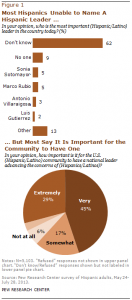Only 1.6 percent of Mexicans seeking political asylum are accepted by U.S. courts
|
EL PASO — Only 1.6 percent of Mexicans seeking political asylum in the United States have been approved in the last five years, while the national approval rate during this same time for all asylum requests was 49.4 percent. Approval rates for asylum cases vary by district and according to national statistics two of six immigration judges in El Paso have among the lowest asylum approval rates in the nation. Judge William L. Abbott denied asylum requests to 80.1 percent of applicants and Judge Thomas C. Roepke’s denial rate is 96.3 percent. The Transactional Records Access Clearinghouse (TRAC), a nonpartisan center based at Syracuse University, tracks the enforcement activities of the federal government. TRAC analyzed the decisions of 273 immigration judges that have ruled in at least 100 political asylum cases in the last five years.




